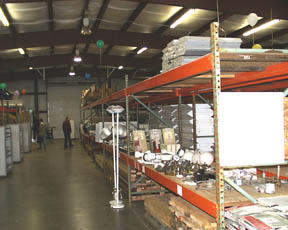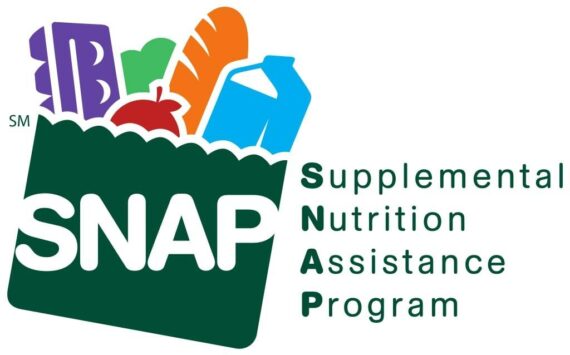Taking the concept of recycling to a whole new level, the Metropolitan Development Council (MDC) held the grand opening of Tacomas ReHarvest Center on Friday.
As part of the Community Development & Housing Services Division of MDC, the ReHarvest Center has two main goals: waste stream reduction through the dismantling of buildings and salvaging reusable products, and providing work training and employment opportunities for area residents.
Its been in progress about two years, said Jan McLellan, program administrator, of the ReHarvest Center.
The ReHarvest Center got its start when MDC officials were introduced to the deconstruction concept at a conference in Eugene, Ore.
During a field trip, officials saw a reuse/resale yard which featured miscellaneous building parts.
That operation was too small and didnt have the economic impact MDC officials were looking for.
We gave it some more thought – not much more – and determined it didnt meet our interest, said MDC Economic Development Director Teresa Lemmons. I wanted to create jobs!
A call from Washington, D.C. prompted a second look at a deconstruction facility in Portland, Ore.
This time officials saw something different – an enthusiastic staff operating a retail facility that was making money.
Following some research and feasibility studies, as well as a grant to secure initial capital funds for the project, Tacomas Reharvest Center was born.
The ReHarvest Center currently has three employees, with plans to expand that number in the future as business increases, McLellan explained.
The materials gathered for sale – with prices generally based on 40 percent to 60 percent retail value – come from structures that are dismantled board by board and nail by nail. All work is done by hand using small tools.
Deconstruction technician James Southern, Jr. described the process of carefully taking apart a building from the inside out during a PowerPoint presentation that stressed safety and proper deconstruction techniques.
Deconstruction is a piece by piece process, he explained, adding the program is good for the environment, the economy and society.
The deconstruction of buildings also helps to provide training and employment for people in the area.
Weve actually created jobs that werent there before, said Rose Stidman, development director.
Lemmons agreed: Its starting to mean more economic impact for this community.
Our purpose is to help people help themselves out of poverty, said MDC Executive Director Linsey Hinand.
Facilities like the ReHarvest Center are springing up across the nation, including Resource 2000 in Boulder, Colo., ReStore in Kansas City, Mo., Loading Dock in Minneapolis, Minn., Habitat for Humanity in Ft. Campbell, Ky. and Housing and Urban Developments (HUD) Hope VI project in Washington, D.C.
The concept of greater reuse of materials can be seen locally as well.
University of Washington Tacoma and the Greater Tacoma Convention and Trade Center construction projects require recycling and reuse of building materials in demolition and development.
This is all for sale, McClellan said, in reference to the massive warehouse leased to hold all the materials that can be purchased.
Materials reclaimed and donated to the ReHarvest Center are eligible for tax deductions.
The ReHarvest Center, which is open Monday through Friday from 9 a.m. to 4 p.m., is located at 9614 20th Ave. E. in Tacoma. Call 253/531-5845 for more information.
The Metropolitan Development Council is a non-profit community agency that has served Tacoma since 1964. The organizations mission is to provide the support necessary so that low income people can get out of poverty.





